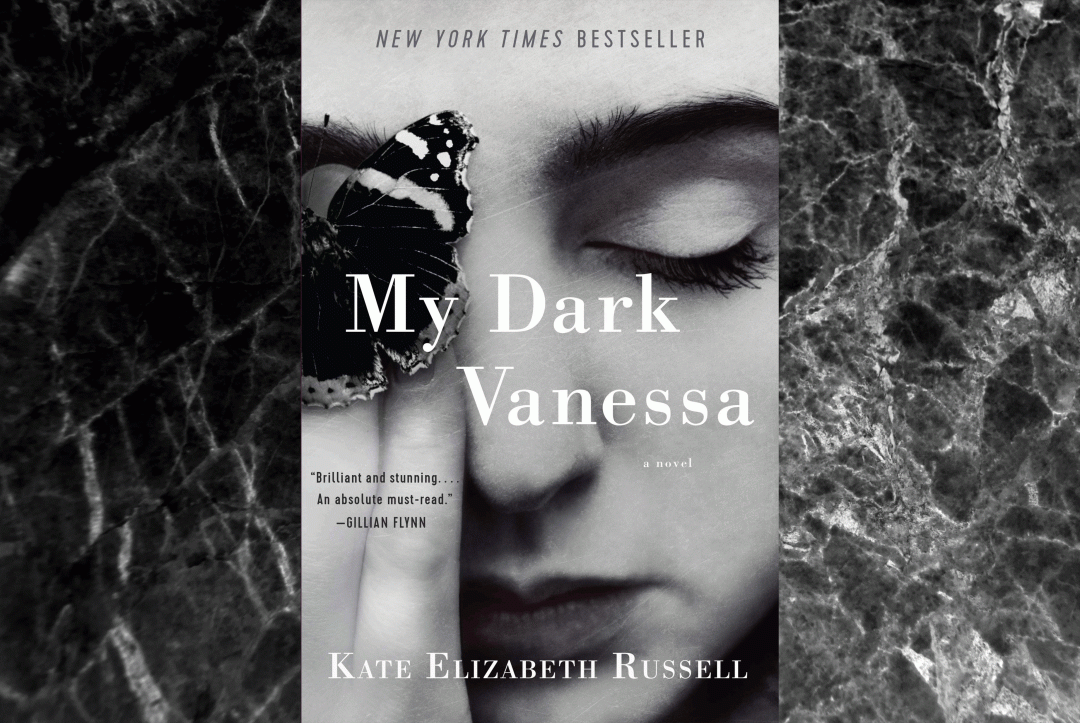
Review Content Warning: mentions of rape, pedophilia, student-teacher relationship
Book Content Warning: Explicit descriptions of rape, pedophilia, student-teacher relationships, gaslighting, victim-blaming
“Teacher-student relationships were known to happen from time to time, but he’d never had one because, before me, he’d never had the desire. I was the first student who put the thought into his head. There was something about me that made it worth the risk. I had an allure that drew him in.” So writes Kate Elizabeth Russell in the first chapter of her debut novel, My Dark Vanessa, and the reader is immediately engulfed in the protagonist’s jumbled account of her past: a maelstrom of shame, guilt, and victim blaming. The emphasis here is on Vanessa, the protagonist: she drew her teacher in, she put the thought into his head, she is the problem. And it is this backwards-thinking, the aftermath of extreme abuse, that sets the groundwork for a painful exploration of grief and trauma.
The book follows Vanessa Wye through two periods of her life: as a fifteen-year-old student studying at a Maine boarding school, and as a thirty-two-year-old woman trying to piece her life together during the height of the 2017 #MeToo era. Both timelines, which weave together throughout the narrative, revolve around the long-term relationship Vanessa had with her high school English professor Jacob Strane, a man over thirty years her senior. As a teenager, Vanessa is a loner. She longs for connection, for inclusion, and for understanding—and it is this natural insecurity that her teacher preys upon. As an adult, Vanessa’s past is cracked open when another former student accuses Strane of sexual assault, and she struggles to make sense of the relationship that has become a cornerstone of her identity.
Russell excels in crafting authentic characters and manipulating language to convey precise emotions. Her skillful wordplay shines brightest when Strane subtly manipulates Vanessa into believing what they have is love. Their interactions are never romanticized; rather, the audience and Vanessa share the same repulsion and confusion towards the events that occur. Consequently, the story doesn’t aim to glamorize abuse, but to capture different reactions to victimhood and explore the factors that allow these abusive relationships to develop in secret.
Consequently, the story doesn’t aim to glamorize abuse, but to capture different reactions to victimhood and explore the factors that allow these abusive relationships to develop in secret.
To be frank, this is not a pleasant book and many will find the intense details, which include graphic depictions of statutory rape, far too upsetting and triggering to read. Additionally, the similarities to Vladimir Nabokov’s Lolita are unavoidable and Russell herself ties the two narratives together by incorporating Lolita into the story. Strane gives Vanessa a copy of Nabokov’s work, and Vanessa uses it to make sense of her situation through a literary lengs. But My Dark Vanessa is not so much a retelling as it is an echo of Lolita, giving a voice to young victims like Dolores Haze who are trapped and abused by those wielding authority over them. While these ugly, repulsive descriptions help convey the true emotional and physical gravity of abusive relationships with power imbalances, I felt the benefits of this novel—like the solidarity found within its depiction of healing—might be more accessible to readers with similar experiences if the triggering content was toned down.
But My Dark Vanessa is not so much a retelling as it is an echo of Lolita, giving a voice to young victims like Dolores Haze who are trapped and abused by those wielding authority over them.
However, there is also comfort in how accurately and graphically Russell depicts the aftermath of trauma. Vanessa blames herself, disassociates, and tightly clings to the invented narrative of her “romance.” She tells her therapist, “I just really need it to be a love story, you know?…Because if it isn’t a love story, then what is it? It’s my life. This has been my whole life.” And this brutal honesty is Russell’s triumph: the ugly side of grief, and the painful job of picking up the pieces that come with healing. It is not a feel-good movie montage, but rather a slow, arduous process of contextualization and forgiveness too deep and powerful to be properly verbalized.
Kate Elizabeth Russell is originally from eastern Maine. She holds a PhD in creative writing from the University of Kansas and an MFA from Indiana University. My Dark Vanessa is her first novel.
My Dark Vanessa can be purchased here.

